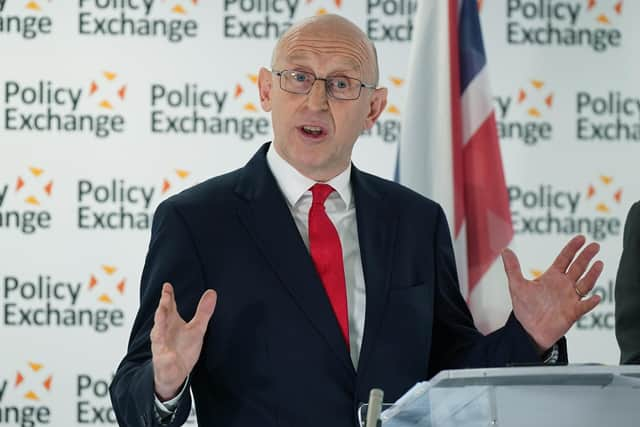Labour will treat national security as a key priority in an uncertain world - John Healey
That was five months before the fall of Kabul, then Putin’s invasion of Ukraine, Western withdrawal from Mali and now fighting in Gaza.
When he became leader, Keir promised: “Never again will Labour go into an election again not trusted on national security”.
Advertisement
Hide AdAdvertisement
Hide AdIt’s a pledge we’ve pursued together since. Looking to set out for the public: our principles, our approach, and our plan for defence.


So ahead of the Government’s 2021 Integrated Review, I set out our core principles – with unshakable Labour commitments to NATO, our nuclear deterrent, international law, and to building more in Britain.
After that, the global picture rapidly darkened.
So ahead of the 2023 IR Refresh, I set out Labour's approach to this new world of increasing danger and disorder.
NATO first. Rebuilding relationships with European allies. Developing Indo- Pacific partnerships. Standing with Ukraine for as long as it takes to win.
Advertisement
Hide AdAdvertisement
Hide AdThen at Labour's Conference last year, I began to lay out Labour’s plan for defence in government - with five strategic priorities to keep Britain safe.
Reinforce protections for the UK homeland, ensure UK NATO obligations are fulfilled in full, make allies our strategic strength, direct defence investment first to British jobs and British business, and renew the nation's contract with those who serve, and the families who support them.
Last month in his Lancaster House speech, the Defence Secretary said we are “moving from a post-war to a pre-war world.” This is deeply sobering.
At every level - civil society, the defence industry, the armed forces, Whitehall and Westminster - we need to take seriously what this might mean.
Advertisement
Hide AdAdvertisement
Hide AdOver the next decade, we face Putin and an active alliance of aggression from autocrats who have contempt for international law and freely squander the lives of their own people.
And we face the reality that European allies must take on greater responsibility for European security, as the US increasingly focuses on China and the Indo Pacific.
The Ukrainians are fighting with huge courage – civilians and military alike. They’ve regained half the territory taken by Putin and disabled his Black Sea fleet.
But Russia is far from a spent force, with its economy on a wartime footing and military spending now 30 per cent of its government budget. That’s why Labour strongly backed the £2.5bn military aid for 2024, as well as the new UK-Ukraine Security Cooperation Agreement.
Advertisement
Hide AdAdvertisement
Hide AdThe Defence Secretary, in his Lancaster House Speech, was right when he said: “For Ukraine, this will be a year when the fate of their nation may be decided.”
He was also right to argue that what we do in UK defence can send important signals to the world.
But what signal does it send to our adversaries when UK Armed Forces have been “hollowed out and underfunded” over the last 14 years, as Ben Wallace admitted to me in the Commons last year.
An abridged version of a speech by John Healey MP, Labour’s Shadow Defence Secretary, at the Policy Exchange.
Comment Guidelines
National World encourages reader discussion on our stories. User feedback, insights and back-and-forth exchanges add a rich layer of context to reporting. Please review our Community Guidelines before commenting.